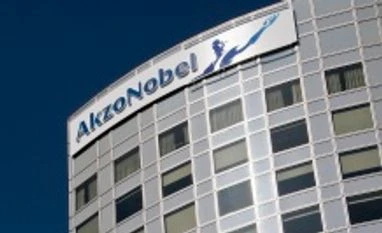Dutch paints and coatings maker Akzo Nobel NV rejected a 21 billion euro ($22 billion) bid from larger US rival PPG Industries Inc on Thursday, saying instead it wanted to "unlock value" by spinning off its chemicals business.
PPG's unsolicited offer comes just days before an election where the vulnerability of the biggest Dutch companies to foreign takeover has been a concern.
Akzo Chief Executive Ton Buechner said the maker of Dulux paint was best placed to create value itself and was looking at floating or selling its specialty chemicals arm, which accounts for roughly a third of sales and earnings, with a 2016 operating profit of 629 million euros on sales of 4.8 billion euros.
The cash and share offer from PPG was "unsolicited, non-binding and conditional" and worth around 83 euros per share, Akzo said. The bid represented a 29 percent premium to Akzo's closing price of 64.42 euros on Wednesday and its shares rose 14 percent to 73.49 euros on Thursday, nearing all-time highs.
Pittsburgh-based PPG confirmed its approach on Thursday, saying its proposal was "attractive and comprehensive".
"We believe a combination is a very compelling strategic opportunity," said CEO Michael McGarry in a statement, adding he believed it was in the interest of shareholders, employees and customers as well.
More From This Section
"PPG...has devoted has devoted significant time and resources to analyzing a potential combination of PPG and AkzoNobel and is confident in its ability to execute and complete the proposed transaction," it said.
But Buechner said Akzo's management and supervisory boards had concluded that the PPG proposal failed "to reflect the long-term value creation potential of the company".
PPG's offer was also risky because cost savings were uncertain, it would lead to a highly leveraged company, and it stood a good chance of being blocked by regulators, he added.
However, analysts said there could be merit in a deal.
"In our view, Akzo Nobel could in large parts be a good fit for PPG in a fragmented global coatings market," said Kepler Cheuvreux analyst Christian Faitz in a note.
Faitz said the pair were the two biggest players, with PPG holding 12 percent of the market and Akzo another 9 percent.
"One significant overlap would be in automotive refinish, while all other segments except for decorative paints in Europe would be a good complementary fit," he said.
Dutch takeover fears
Analyst Jauke de Jong of AFS Group in Amsterdam said he thought regulators would oppose the deal on antitrust grounds and he doubted PPG could overcome Akzo opposition.
"AkzoNobel has sufficient takeover defences to block a hostile takeover," he said.
There could also be political opposition after Dutch Finance Minister Jeroen Dijsselbloem on Tuesday warned that large Dutch companies were being targeted by foreign buyers because they are cash-rich. He called for a panel modelled on the Committee on Foreign Investment in the United States (CFIUS) with the power to block industrial takeovers.
Buechner said Akzo had intended to announce plans to sell or float the specialty chemicals division later this year, but had brought forward the announcement after PPG's offer.
If Akzo does spin off the division, it will be the latest in a series of European companies to attempt to unlock greater shareholder value by doing so.
Akzo's specialty chemicals business makes ingredients used in industrial processes and products, including polymers, salt and chloralkalines used for making everything from foodstuffs to household products, paper, vehicles and constructing buildings.
Akzo, which has net debt of 1.25 billion euros, fell short of analyst earnings estimates in the last three months of 2016, as its marine and energy sectors weighed. Restructuring costs also pressured results.
In January, PPG reported adjusted full year operating income of $1.55 billion. It has net debt of $3.8 billion and a market capitalisation of $27 billion.
)